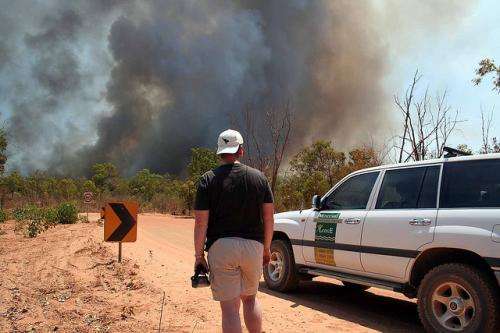Self-doubt hampers disaster preparation efforts

People who are indecisive rather than anxious are more likely to be under-prepared for disasters, such as bushfires, according to a recent study.
The work builds on previous psychological research which suggested that a lack of preparedness could be connected to the interrelated personality traits of indecisiveness and 'trait anxiety'.
Indecisiveness involves people being concerned about making mistakes and perceiving themselves as less able to make sound decisions; while trait anxiety is a kind of chronic anxiety characterised by strong and frequent feelings of stress and worry in daily life.
However, the University of Western Australia-led study indicates that indecisiveness is the key factor that leads to under-preparation for potential disasters, with anxiety not nearly as strong an influence.
"Our research showed that even though more anxious people tended to be less prepared than less anxious people, this was only because those more anxious people were also more indecisive," Dr Ilona McNeill says.
"The reason why indecisive people were preparing less seemed to be because they believed they had little control over bushfire outcomes anyways.
"We found that worrying might not always be a bad thing, and may, in some cases, be beneficial for task performance.
"However, the type of worry that highly anxious people tend to experience is different from this beneficial type of worry."
Certain types of worrying inspire action
The researchers suggest while those with trait anxiety tend to worry more about bushfires, those with beneficial worry may be able to suppress their general anxiety and take action.
This is consistent with similar patterns of suppression found in research related to problem solving and academic performance.
Dr McNeill says the findings open up opportunities for a deeper understanding of cognitive processes, and offer a stepping stone to practical interventions.
"Future research could examine what types of worry might lead to better planning, and whether it's possible to change people's worrying from the type that is unconstructive to the type that motivates them," Dr McNeill says.
"Further research could also investigate whether it would be useful to help indecisive people plan better by increasing their perceived ability to deal with bushfires, perhaps through community information sessions.
"Understanding who will fail to undertake risk-mitigating actions, and why, is an important step in reducing such task avoidance."
The study involved 223 residents living in wildfire-prone areas of WA and was conducted by UWA, Murdoch University and Charles Darwin University.
More information: "Predicting Risk-Mitigating Behaviors From Indecisiveness and Trait Anxiety: Two Cognitive Pathways to Task Avoidance" DOI: 10.1111/jopy.12135




















